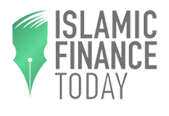MOVING FORWARD: Reviving the True Spirit of Islam to address the Problems of Our Times
Today, more than ever before in the history of humanity, there is a need for a radical economic transformation of society. Unbridled capitalism facilitated by the conventional banking system with its exploitative usurious practices has proven to be an utter failure.
A system where the rich get richer and the poor poorer surely cannot stand the test of time. The financial crises the world has undergone over the last one hundred years, both in the inter-war period and in more recent times, are only the signs of a greater economic malady and it is perhaps only a matter of time when the entire system starts crumbling down.
However there is a way forward away from the maddening order, and that is the economic prescription the Islamic faith laid down 1400 years ago, which is valid today as it was then. This is after all a system that recognised free enterprise to expand the human spirit to its full potential and benefit society as a whole, while at the same time ensuring the circulation of wealth rather than its accumulation through principles such as Zakat (Alms Tax) and annihilating exploitative practices such as Riba (Interest Taking).
As our lead story by Professor Rosly Ismail shows, there are many pitfalls even in a dual banking system where Islamic Banks and Financial Institutions operate side by side in an environment dominated by conventional players. Certain factors at play here inhibit IB & Fs from realising their true potential. However he is hopeful for the future of Islamic banking since new developments such as in Malaysia have shown a way out of this situation, of which he gives a basic idea for the benefit of our readers.
We also have two articles on the importance of Zakat by Professor Magda Ismail and Riza Yehiya which underscore the importance of Zakat in uplifting human society from its present predicament. Professor Magda poses a very pertinent question. If as much as USD 123 billion of zakat money could be collected yearly through salary deduction schemes only, how much more could be collected from all zakatable wealth? Further as our other contributor writing on the topic, Riza Yehiya shows, Zakat is not simply an alms tax, but a holistic instrument that has the potential to eliminate poverty across all spectra. The problem is that it has not been utilized to its full potential.
Indeed, developing Zakat as a tool for economic empowerment could create a conducive environment for Islamic finance to take that long awaited quantum leap. Once a proper system for disbursing Zakat funds is implemented and the trickle down effect is at play, it has all the potential to take Islamic Banking and Finance to the next level.
Asiff Hussein, Editor–in-Chief, Islamic Finance Today

